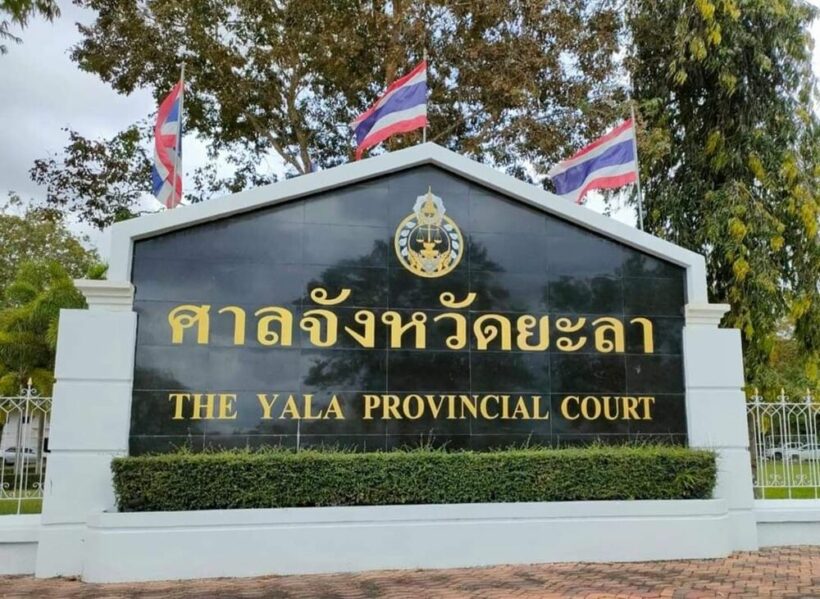Southern Thai man sentenced to almost 5 decades for terrorism and other charges

Southern Thailand doesn’t look like it’s headed towards peace any time soon. In the latest report on violence in the region, a man in Yala province has been sentenced to 46 years in prison yesterday after he was charged with terrorism, criminal association, and violating the firearms and explosives law.
The man, along with 8 other people, was found guilty of stealing a van from a delivery service, and turning it into a car bomb. When locals in Raman district noticed the van behind the district’s police office, they grew suspicious, and notified the police’s bomb disposal squad. The squad used a robot to help investigate, and evacuated people close to the van.
The squad then found an improvised explosive device in the van. The officers removed the device, and took it to a place where it could be safely destroyed. They later arrested one of the 9 suspects, who pleaded guilty to the charges, and was sentenced to 46 years in prison.
After Thailand annexed the southern Pattani area in 1909, the area was converted into the Thai provinces of Pattani, Yala, Narathiwat, and four districts of Songkhla. The conflict between the Thai government, and the Patani Malay people in Southern Thailand, has existed since that year, when the area was annexed.
The Patani Malay people are primarily Muslims, while Thailand’s majority are Buddhists. This, along with their different language (Malay) and culture, has created tensions. There have been several Patani Malay militant insurgent groups formed. The Thai government has expressed frustration, claiming the Patani Malay are the country’s only minority that has resisted assimilation. There are now frequent reports in the region of insurgent-related violence, such as roadside bombings and attacks at police stations.
Over 6,500 people died and almost 12,000 were injured between 2004 and 2015 in a formerly ethnic separatist insurgency, which has currently been taken over by hard-line jihadis and pitted them against both the Thai-speaking Buddhist minority and local Muslims who have a moderate approach or who support the Thai government.
SOURCE: Thai PBS World
Latest Thailand News
Follow The Thaiger on Google News:


























